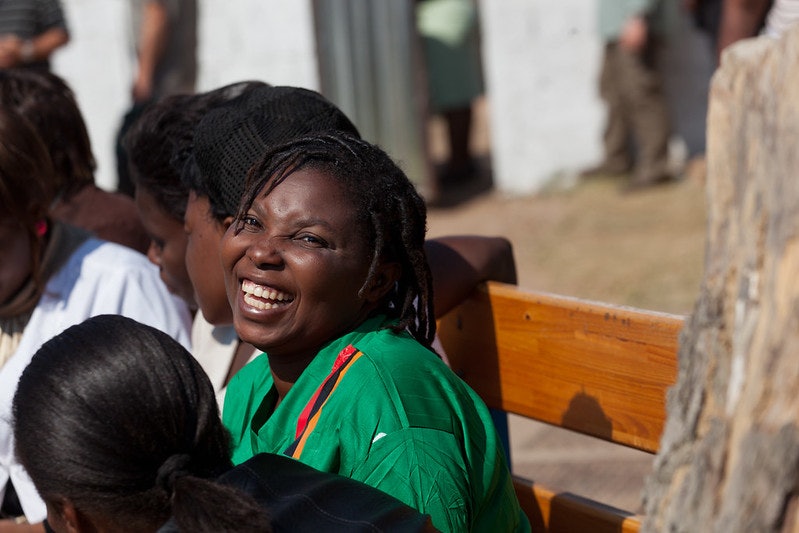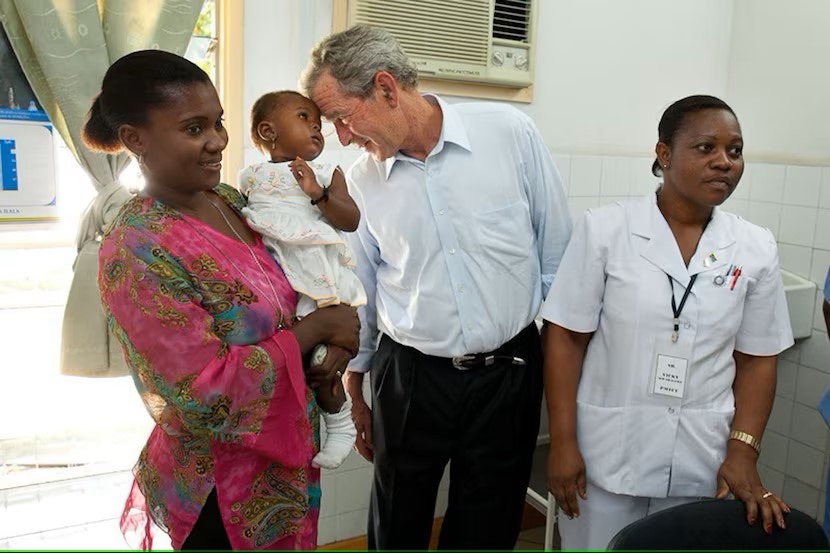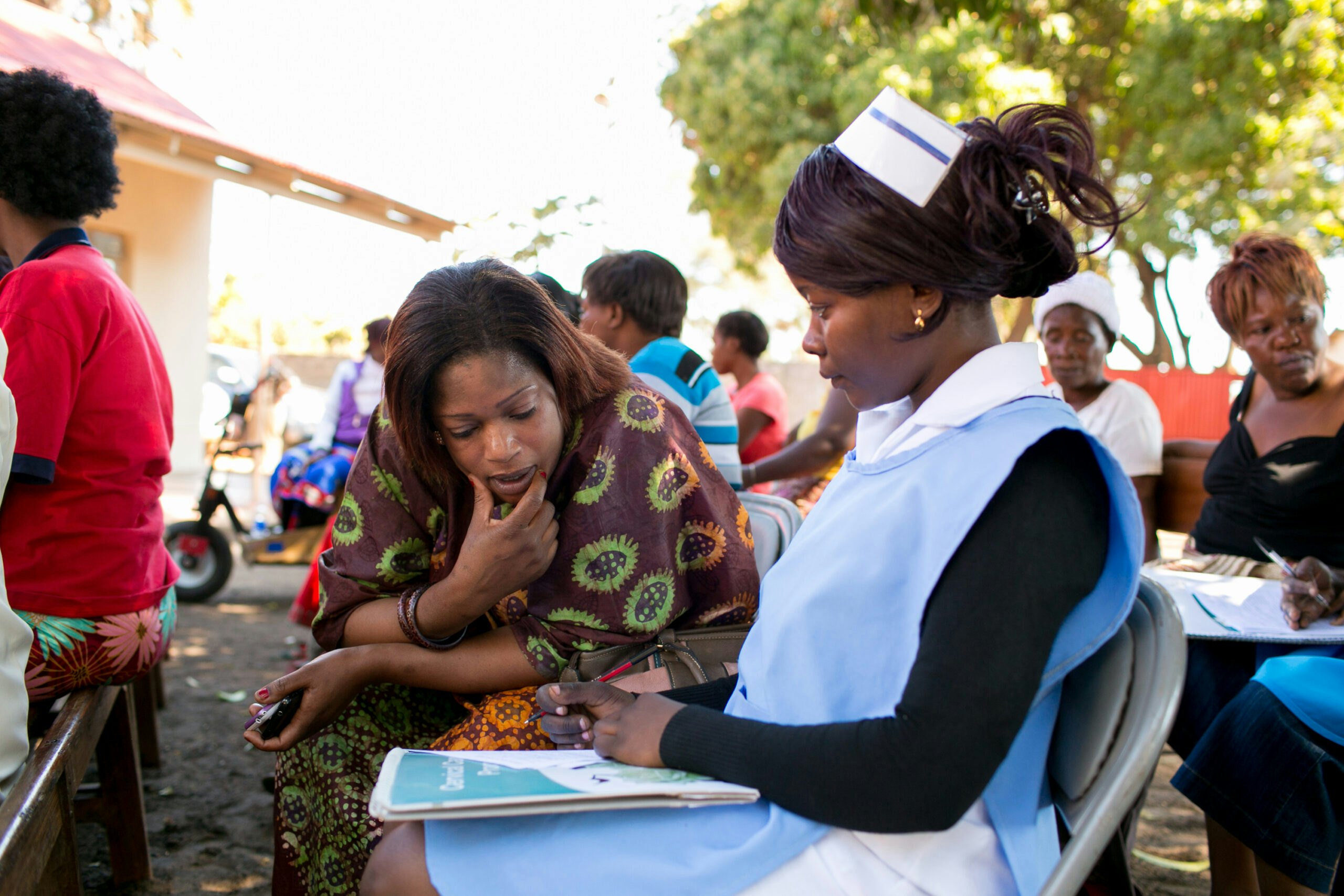LK, a three-time North Korea Freedom Scholarship recipient, is an electrical and computer engineering student at a university in Illinois. A former member of the North Korean Army, LK remains anonymous to protect family members still living in North Korea.
Jeff Kim: How’ve you been? Give me a short update since last year.
LK: I’ve been pretty good. I transferred from community college to a university this year. I received grants and scholarships for the tuition, and if I add up everything, it’s almost enough to pay off everything. That was my biggest concern, but after realizing I could do it, I was relieved, and everything worked out well.
JK: Tell us about your new experience at the university?
LK: This week is actually my first week of classes. The classes are pretty big, and there are a lot of people from different states with different backgrounds. I think it’s pretty amazing just interacting with each other. I am taking a science class that requires lab courses and during the lab, I have to interact with others. It gives me a lot of different perspectives, coming from a community college which is really small. Like in one room [at community college] there were a maximum of 40 students in one class, but [at the university I’m enrolled in] the maximum is around 200. So, it’s totally different.
JK: Earlier this year, you had the opportunity to meet with President Bush at a gathering of North Korea Freedom Scholarship recipients. What was that experience like for you?
LK: It was my second time meeting President Bush, but this time was more meaningful, I think not just for me, but for everyone who was invited because President Bush actually used his time to meet with us. In 2016, there was a conference, but it was so busy, and there was no chance to talk about our personal stories. This year, the good thing was that he pointed us out and asked each of us the details of our personal story. It was really a special experience for me. I never imagined myself talking to the president. The George W. Bush Center is not only giving away scholarships but also is trying to encourage us by managing these events, so I was grateful for the team that organized the event. It opened my eyes to another level because I thought I was only getting a scholarship, but with the team’s efforts and getting to meet President Bush, it was a really good experience.
JK: How has the scholarship helped you?
LK: I didn’t expect to get any scholarships. I was ready to fight for my life and for my future. But after getting scholarships every year, my mindset changed. My progress and my interests changed. Before, I was only doing what I could do in this society to make money and survive. But now, I can talk to people, and I have more spare time to study and explore, instead of working. So [the scholarship] not only lifted my financial burden, but also gave me a chance to open my eyes.
JK: So why is education important to you and why do you think people need to be educated?
LK: When I was homeless and scavenging around in China, I never expected to be a student [in the United States]. I started to study because I wanted to survive. But now I want to study because I want to do more things for the North Korean community and help others. But there are a lot of things I have to do to prepare for the future. Because North Korea is an isolated country no one knows about, I want to do more things. Without studying that is hard to do. That kind of thinking motivates me.
I think studying for me is now really important, since I’m not only pursuing my dreams but also improving my understanding of the world. I’m sure my education will help not only the North Korean community, but also others. I think education is important for all North Koreans. I believe they should study and pursue their education. A lot of people from underdeveloped countries like North Korea don’t tend to study. They tend to earn money and gain financial security. I think studying opens doors for you even in [isolated] communities. That’s why we should study instead of just focusing on earning money.
JK: You are currently studying electrical engineering. Do you have any plans after graduating?
LK: My interests keep changing as I learn more in college. When I made my decision before transferring to the [university], I knew little about electrical engineering. But now I’m learning and taking classes, and I’m slowly realizing what I want to do. I don’t actually have a plan now, but I have started an internship. I still have two years left, and it’s stressful to look forward because with an engineering degree, the core requirements are to have some type of job experience. So that’s what I think I will be doing for the time being. My primary goal after graduating is maybe going to law school or getting an MBA or some master’s degree. So, I’m open to anything for now.
JK: Why is freedom important to you?
LK: Freedom is important because it allows us to learn and do whatever we want. Whether it’s business or studying in college, there are lots of different people that have different interests. It can be harmful to this system, but sometimes you can see the possibilities freedom can bring. I think freedom is the engine for modernizing societies.
JK: What is an activity, routine, or something you never would’ve imagined yourself doing that you now do every day?
LK: I don’t have to worry too much about food, and I can focus on my future. In North Korea, the government controls everything. They select where I should study, where I should go after graduating, and all things are controlled. But here, I have the freedom to choose what I want to eat. I never imagined myself driving, wearing the clothing that I like, or fixing my hair the way I want.
JK: You were in the North Korean army. What are your thoughts about the leader, Kim Jong-un? What was your first impression of him versus how you see him now?
LK: When I was there, he had just become the successor to his late father, Kim Jong-il. After Kim Jong-il died in 2011, Kim Jong-un became the leader. But when I escaped in 2010, he was little [known] to the public. Around that time the government gave away 1,000 [new] won to each person [in exchange for 100,000 old won notes] in the name of Kim Jong-un. [Learn more about the 2009 North Korean currency reform.] It was unprecedented, but these kinds of grants were similar to Kim Jong-il and (Kim Jong-Un’s grandfather) Kim Il-sung’s, when they would give out some cookies and candies. But I wasn’t moved that much.
That’s why I escaped in 2010, to search for my life. Right now when I see Kim Jong-un, I realize he studied abroad. He particularly likes some plays or some kind of basketball or other activities. So a lot of people see him as more open, the one who can open the door for North Korea, but I see it in a different way. Kim Jong-un, I think he didn’t study that much, he pursued what he liked. Just because he was educated it doesn’t mean he’s open-minded. He only pursues what he likes, and I think that can be more dangerous.
JK: Talking about Kim Jong-un we also must talk about human rights issues. What do you know about human rights violations that are occurring in North Korea?
LK: First, it’s a serious problem in North Korea, and a lot of people think that we should include human rights in the conversations with North Korea. However, the current administration is trying not to. It is a really sensitive issue for the North Korean government, and [bringing it up] can be harmful to the negotiations between the two countries. I think there must be steps to negotiate certain things that put human rights on the table. We can’t just go to North Korea and bring up human rights abuses. We need to take steps and find different ways to bring up the human rights issues in the negotiations.
JK: What are some good memories you have of North Korea?
LK: Right after escaping from North Korea while I was in China, I missed many of my comrades from the military, making fun of each other and laughing together. But now I think I miss my family the most. China takes one- or two-weeks’ break during the New Year. I was in China at that time scavenging around, and it was a really hard time for me. I was cold and hungry, but nobody was around me to help. Everybody was home– all the restaurants were closed, there was no food in the garbage, it was snowing, and I couldn’t sleep or I would freeze to death. I was thinking to myself, ‘What if I die here?’ And if I did, the Chinse people will just throw me in the dumpster. Nobody cared about me, and I realized that human beings are fragile. It was the first time I cried after escaping.
So, these kinds of memories still live in me, and that’s why I think I miss my family the most. Even though we didn’t have money or food, we always cared about each other. The love that comes from my family is what I miss the most. I also tried reaching out to my family back in North Korea. The broker fee cost about $500, and I paid the price. [Because North Koreans are forbidden to contact family outside the country, brokers are paid to facilitate phone calls and remittances.] I couldn’t contact them, but [the broker] recorded my mother’s and brother’s voices. It had been 10 years since I heard them, so I didn’t know if it was my mother or not. I couldn’t actually communicate with them, but I was able to hear their voices.
*Many North Korean escapees continue to live in fear, even after becoming permanent residents or citizens of the United States. Leaving North Korea without permission is a crime, and violators and their immediate relatives may face imprisonment or punishment. Thus, some scholarship recipients request that the Bush Institute withhold their names.






























